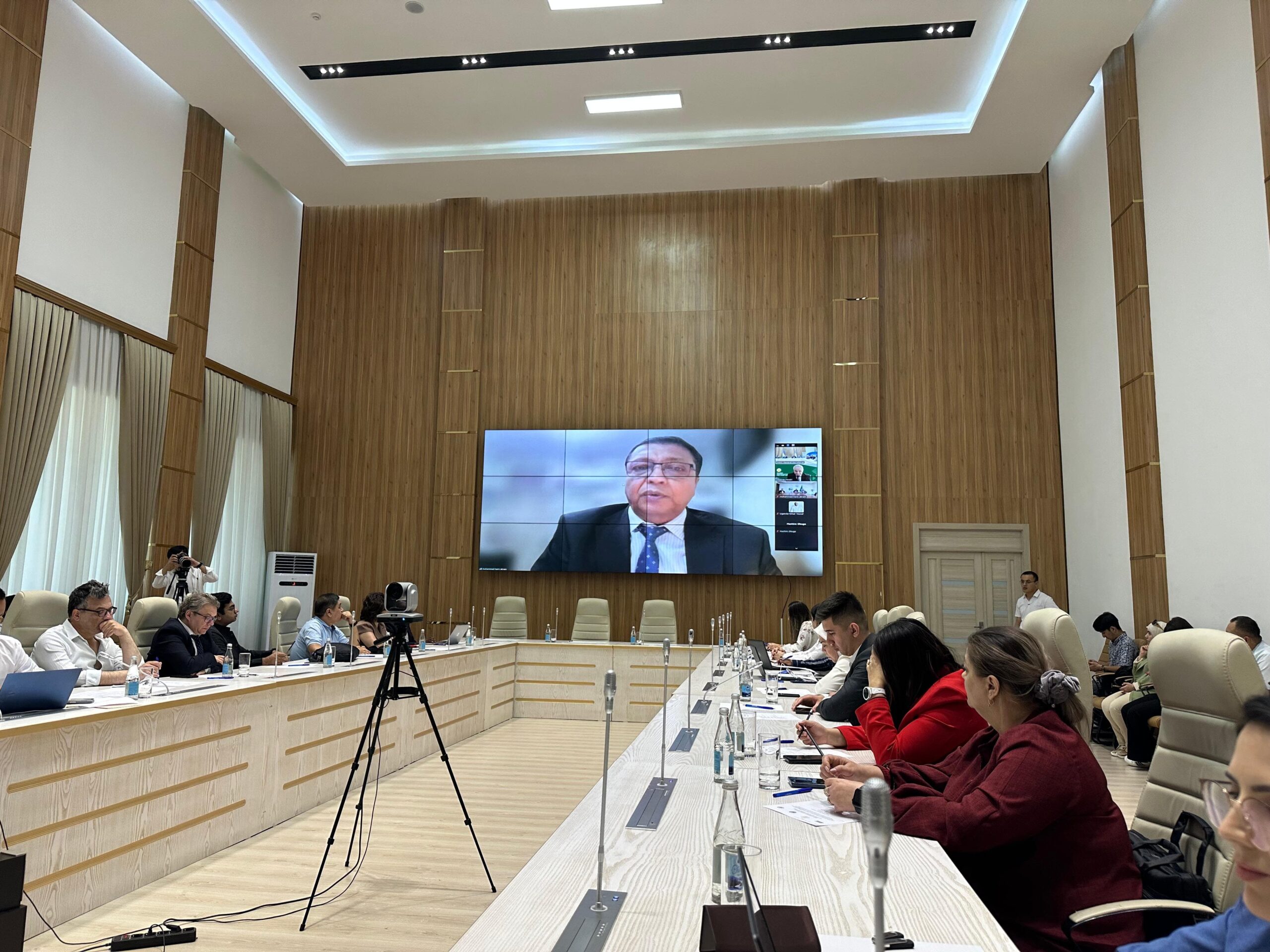WNAM REPORT: Prof. Dr. Muhammad Iqbal Choudhary, Coordinator General OIC-COMSTECH, addressed the inaugural session of the five-day COMSTECH-SMIIC Training Course on “OIC/SMIIC Halal Products Standards and Testing: Food, Pharmaceuticals, and Cosmetics,” held at the Uzbek Agency for Technical Regulation (O’ZTTSA) in Tashkent, Uzbekistan. The event is jointly organized by COMSTECH, the Standards and Metrology Institute for Islamic Countries (SMIIC), the Islamic Organization for Food Security (IOFS), and O’ZTTSA.
In his opening remarks, Prof. Choudhary welcomed participants from eleven OIC member states attending in person, along with representatives from other countries joining virtually. He emphasized that the concept of Halal is deeply rooted in Islamic principles and extends beyond food to include pharmaceuticals and cosmetics. He highlighted the growing importance of Halal certification and standardization in promoting trade, building consumer trust, and ensuring compliance with Shariah.
Prof. Choudhary pointed out that the global Halal market is currently valued at over $1.3 trillion and presents significant economic opportunities for the OIC member states. He stressed the need for capacity building, institutional development, and regulatory frameworks to help member countries benefit from this rapid growth. He praised SMIIC for playing a pivotal role in developing and harmonizing Halal standards across the Islamic world.
He noted that this training course is the fifth in a successful series, with previous sessions conducted in Pakistan, Uganda, Bangladesh, and Morocco. He underlined that these courses serve as vital platforms for knowledge sharing, skills development, and fostering collaboration in Halal standards and testing methodologies.
A major announcement during his address was the progress of the COMSTECH-initiated reverse linkage project between Uganda and Pakistan for the establishment of a Halal Authentication Laboratory at the Islamic University in Uganda. Supported by the Islamic Development Bank, the lab is expected to be operational by August 2025 and will serve the East African region.
Prof. Choudhary also outlined several key programs led by COMSTECH, including the Uzbekistan Country Program, which offers scholarships, joint scientific events, and dedicated initiatives for Uzbek women researchers. He elaborated on the COMSTECH Consortium of Excellence, which links leading academic and research institutions across OIC countries to foster collaboration and science-based growth. Furthermore, he highlighted scholarship programs, particularly the award of 5,000 fellowships for Palestinian students, along with fellowships for Yemeni researchers, women scientists, and scholars from least developed OIC member countries.
He also shared COMSTECH’s ongoing health initiatives in Africa, such as free cataract surgeries in countries like Uganda, Niger, Chad, and Somalia, as well as training programs for ophthalmologists and healthcare professionals. In addition, COMSTECH has been organizing a wide range of capacity-building activities, including workshops, seminars, and exhibitions in science, technology, and innovation.
Prof. Choudhary expressed his deep appreciation to the host institutions in Uzbekistan for their excellent arrangements and hospitality. He reaffirmed COMSTECH’s strong partnerships with IOFS and SMIIC and extended his best wishes to all participants for a successful and productive training course.


